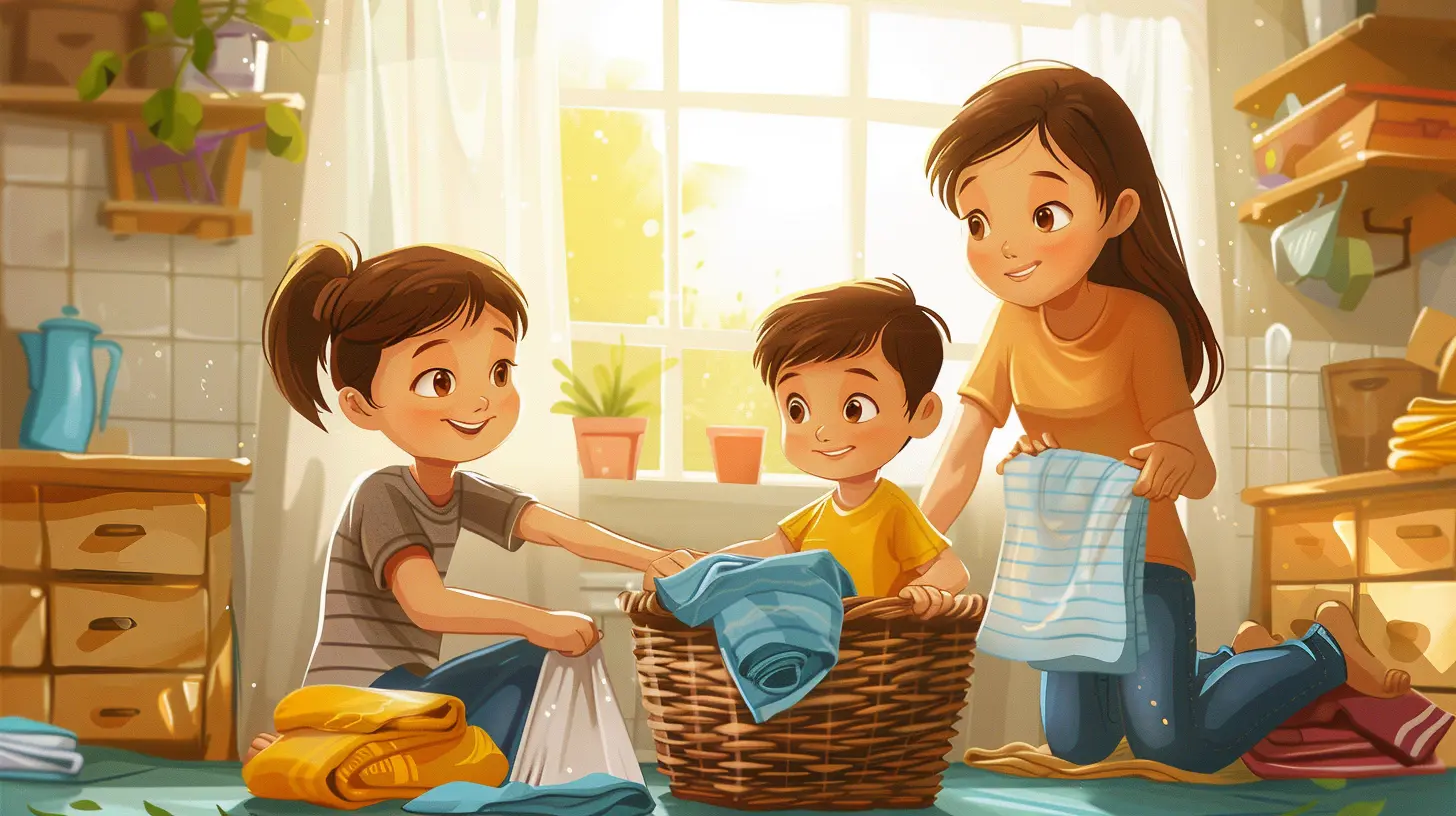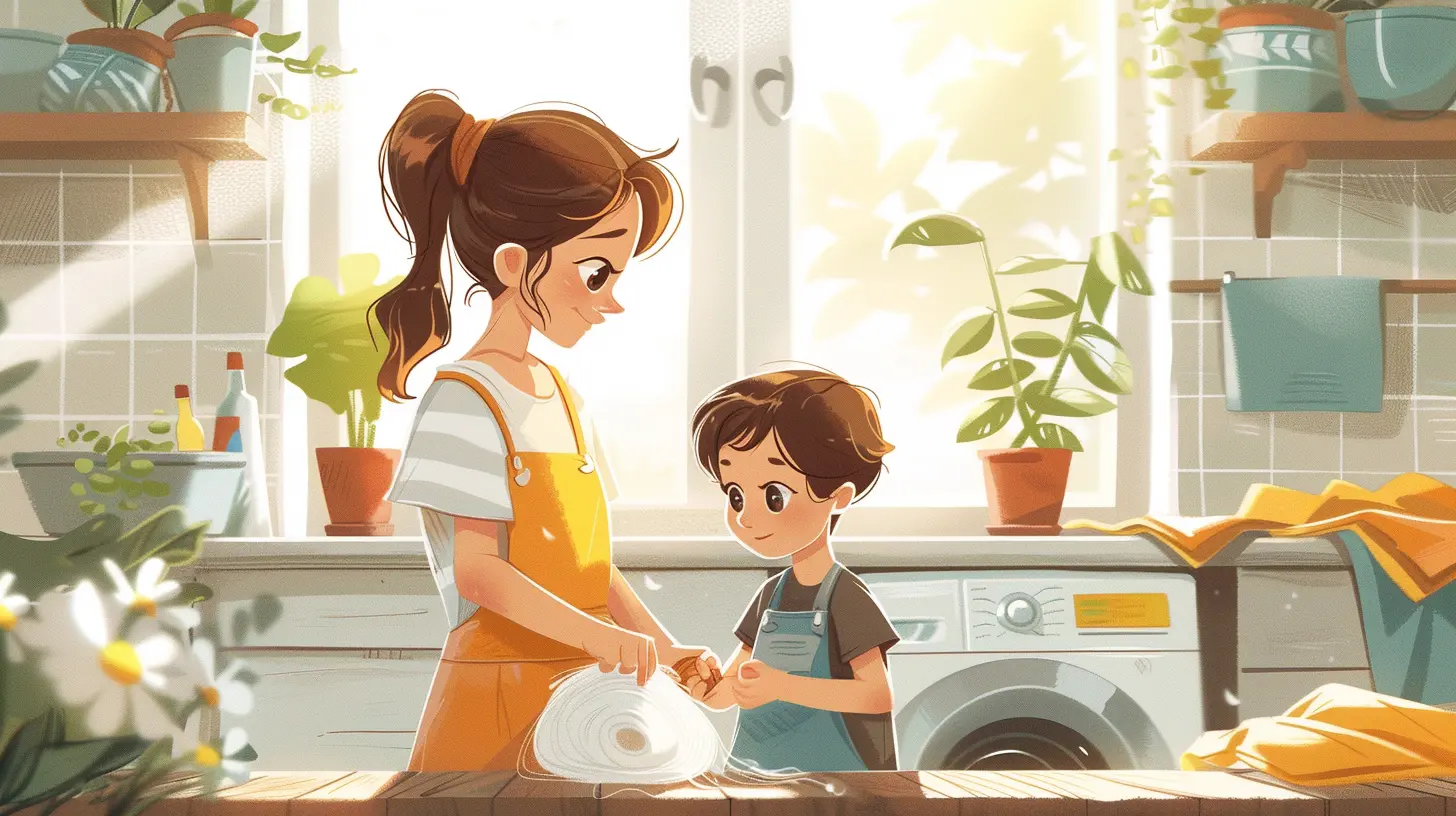Chore Time as an Opportunity for Family Bonding
30 October 2025
Let’s be real—chores usually aren’t at the top of anyone’s “fun things to do” list. In fact, for most parents, it’s a daily battle: nagging, eye rolls, whining, and that dramatic flopping on the couch pretending to be too exhausted to take the trash out. Sound familiar?
But what if I told you that chore time could shift from struggle to connection? Yep, I’m talking about turning all that scrubbing, dusting, folding, and tidying into moments that actually bring the family closer. Crazy? Maybe just a little. Possible? Absolutely.
In this article, we’re diving into how chore time can transform from a boring to-do into a bonding experience for the whole family. So, roll up your sleeves (literally), and let’s get into it.
Why Chores Don’t Have to Be a Chore
Let’s start by flipping the script. Typically, chores are seen as punishment or responsibility—a necessary evil. But what if we reframe them?Chores, underneath all the dust and dishes, are shared responsibilities. And shared experiences, however small, are the perfect foundation for building stronger relationships.
Think about it: working together on a common task creates teamwork, teaches patience, sparks conversations, and hey—sometimes results in unexpected fun (a flour fight while baking, anyone?).
So instead of looking at chores as a box to tick off, treat them like mini family team-building exercises. Not only does this lighten the load, but it also creates space for connection.
The Benefits of Doing Chores Together
1. Builds Teamwork Skills
When everyone pitches in—Mom, Dad, the kids—it sends a powerful message: we’re in this together. It builds a sense of unity and cooperation. You're not a maid or a nag; you're a team captain, guiding the crew to work together for the good of the home.2. Teaches Responsibility Without Lecturing
Let’s face it, kids tune out lectures about “being responsible.” But when they’re actively involved in cleaning, cooking, organizing, or yard work, they’re learning by doing. And that sticks way more than a 10-minute speech.3. Creates Natural Opportunities for Conversation
When your hands are busy, your mind is freer to wander. Ever notice how kids open up the most during car rides or when you're doing something seemingly mundane like folding laundry? That’s the magic of low-pressure environments—they invite real talk.4. Instills a Strong Work Ethic
Doing chores regularly helps children develop consistency and discipline. They learn that tasks won’t always be fun or rewarding right away—but they’re still necessary.5. Strengthens Emotional Bonds
Believe it or not, scrubbing the kitchen floor together (with music blasting and plenty of goofy dance moves) can foster a sense of emotional closeness. Shared effort often leads to shared joy.
Making Chore Time Fun (Yes, It’s Possible!)
If your family hears the word “chores” and collectively groans, don’t worry—you’re not alone. The trick is making it less of a drag and more of a game or ritual. Here’s how:1. Turn It Into a Game
- “Chore Bingo”: Create a bingo board with various chores. Whoever gets a line first wins a little prize.- Speed Challenges: Who can sort the laundry the fastest? Who can wipe down the table in under 60 seconds?
- Treasure Hunt: Hide fun little notes or tiny rewards in places kids would only find when doing their chores.
2. Add Music
Nothing changes the vibe like a good playlist. Create a family “chore jam” playlist and blast it during clean-up time. You’ll be amazed at how much more groove there is in that vacuuming.3. Give Choices
Kids love having a say. Let them pick their chore from a list or switch roles weekly to keep it fresh. It gives them a sense of autonomy and keeps things from feeling monotonous.4. Celebrate the Wins
When chores are done—don’t just move on. Celebrate. High-fives, a round of “thank-yous,” or a quick treat like a dance party or popcorn break can make a huge difference in keeping motivation high.
Age-Appropriate Chores (So Everyone Joins the Fun)
Want your little team to actually thrive during chore time? Assign age-appropriate tasks. No one wants to be overwhelmed with something too difficult—or insulted with something too simple.Toddlers (Ages 2-3)
They’re little, but they’re eager helpers!- Put toys in the bin
- Wipe up spills
- Hand you clothes for folding
Preschoolers (Ages 4-5)
Now the real action starts.- Make (or help make) their bed
- Water plants
- Set the table
Elementary (Ages 6-9)
They’re capable and curious.- Feed pets
- Sweep floors
- Load/unload dishwasher (with supervision)
Tweens (Ages 10-12)
Independence kicks in.- Do laundry
- Take out trash
- Cook simple meals
Teens (Ages 13+)
Basically mini adults.- Deep clean rooms
- Mow the lawn
- Grocery shopping or meal planning
Tip: Rotate chores regularly so no one gets stuck with the “gross” ones forever.
How to Get Buy-In (Without the Battle)
Let’s be real: getting kids on board isn’t always as simple as making it fun. Motivation still matters.1. Set Clear Expectations
Instead of vague instructions like “clean your room,” be specific: “Put your toys in the box, clothes in the hamper, and books on the shelf.” Clarity reduces confusion—and excuses.2. Be Consistent
If chores “sometimes” happen, they’ll never feel important. Build them into the daily or weekly routine just like meals or homework.3. Lead by Example
Kids watch more than they listen. When they see you doing chores (without constant complaints), they’re more likely to mirror that attitude.4. Use Positive Reinforcement
Praise effort, not just results. A “Thanks for helping, I noticed how you organized your toys today—looked awesome!” goes a long way.Bonding Moments Hidden in Chore Time
Some of the best family memories are made in the most unexpected places. Chores included.- Cooking together: It’s not just about whipping up dinner. It’s about sharing stories while chopping onions or laughing when the flour poofs up in your face.
- Yard work: Raking leaves turns into a leaf fight. Planting flowers becomes a shared creative project.
- Decluttering: Going through old stuff often leads to storytelling about “remember when...”
- Car washing: Water hoses + sunshine = instant family fun.
These are moments when laughter, life lessons, and connections sneak in through the cracks.
Building Routine, Building Connection
Routines provide structure. But routines that include connection? That’s gold.When you carve out a specific chore time (say, Saturday mornings or 15 minutes after dinner), it becomes a shared experience everyone can count on. It’s not just about clean floors—it’s about showing up for each other.
As time goes on, your kids won’t just remember the dishes you made them wash. They’ll remember the music you sang together, the jokes you cracked, the feeling of accomplishment when you high-fived after cleaning the kitchen.
That’s a win worth more than a spotless house.
Final Thoughts: Chores Aren’t Just Tasks—They’re Opportunities
Look, no one’s saying chores will suddenly be everyone’s favorite part of the day. But when approached with a little creativity and a whole lot of heart, those everyday tasks can be transformed into meaningful moments.So next time you’re tempted to say, “Just do the dishes already,” pause. Ask your kid to help you out. Put on some music. Talk about your day. Laugh when the soap bubbles fly everywhere.
You’re not just cleaning the kitchen—you’re building a closer family, one chore at a time.
all images in this post were generated using AI tools
Category:
Kids And ChoresAuthor:

Maya Underwood
Discussion
rate this article
1 comments
Oberon Kirkpatrick
Chore time can be a fun way to connect as a family, turning tasks into quality moments.
October 31, 2025 at 3:36 AM

Maya Underwood
Absolutely! Turning chores into shared experiences fosters teamwork and strengthens family bonds.


